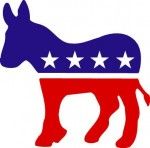What’s Left: Much Ado About Nothing

The President’s budget has been a significant sticking point between Democrats and Republicans (and further, between the moderate and tea party conservative factions) throughout President Obama’s four-year term.
With brinkmanship between the two parties nearly causing the government to shut down a little over a year ago, one would expect all eyes to be on the President’s fiscal budget for 2013.
However, when President Obama released his vision for the budget – a document that would enact sweeping cuts, bring the deficit back under $1 trillion and give teeth to the progressive tax code – the world yawned.
Why? The answer, simply, is that nobody needs to care yet. Congress doesn’t need to pass a budget until early 2013. The president is up for re-election and the Senate majority leader Harry Reid has said he has “no plans to bring a budget to the floor this year” for obvious political reasons.
Thus, the budget is more of a political tool than anything. Republicans will wave it around (in fact, they already have on television, relabeling it “Debt on Arrival”) bemoaning its tax increases on individuals making over $250,000 a year, its recommendation that the Bush tax cuts expire and presumably because it doesn’t replace the entire federal government with a Chuck E. Cheese à la Ron Swanson from Parks and Recreation. Similarly, President Obama will wave it around on the campaign trail as he seeks a second term, illustrating how it holds true to his campaign promises and the principles on which he was elected.
However, make no mistake, this budget currently means nothing. Perhaps it will be debated, perhaps it will be cited in a resolution by the House of Representatives, but this budget is going nowhere soon.
As much as I hate the term “political theater,” nothing better describes the performances of these players using this prop-budget. However, should President Obama be re-elected to a second term, Congress must eventually pass something similar to this document.
Though we can expect that compromise will probably force the enacted budget far from its current form, the proposed budget draws attention to a number of changes that could be contentious come December.
First of all, taxes would be increased on the wealthy. President Obama has said that he plans on letting the Bush-era tax cuts expire and raise taxes on everyone making over $250,000 a year.
This will be difficult to reconcile with Grover Norquist’s “no new taxes pledge” that many freshman Republican representatives have taken. Barring a major upset in both the House of Representatives and the Senate in the 2012 elections, this issue will be a priority for both parties.
Secondly, spending would be reduced by close to $400 billion ($4 trillion over the next ten years).
A middle-of-the-road approach, by any measure, the cuts will be pulled apart by Republican deficit hawks who see Obama’s plan as a feeble swing and miss, as well as liberals who will be wary (as I am) of cuts to the Department of Agriculture’s foodborne illness testing program, the EPA, the Department of Fish and Game and the Centers for Disease Control and Prevention.
As a whole, however, these cuts are nothing like the austerity measures of Europe and the tax increases will not smother America’s wealthy.
This budget may be dead on arrival, but it is sensible, reasonable and palatable to moderates, and I hope that the enacted spending bill of a year from now shares these practical aims.
Contact Nate Lynch at [email protected].




